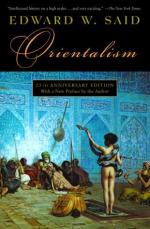|
This section contains 6,943 words (approx. 24 pages at 300 words per page) |

|
SOURCE: “Opium and the Imperial Imagination,” in Reviewing Romanticism, edited by Philip W. Martin and Robin Jarvis, Macmillan, 1992, pp. 116-33.
In the following excerpt, McDonagh discusses Thomas DeQuincey's writings on the political situation in China in the 1830s and 1840s in light of what those writings suggest about the connection between his aesthetics and politics.
The peculiar relationship between Romanticism and addiction has long been explored. Literary criticism's treatment of drugs ranges from biographically-oriented studies which examine poems as the symptoms of addiction, to those that read addiction as the symptom of Romanticism.1 More recently historicist critics have argued that not only is addiction a defining interest of Romantic writing, but that literary criticism often repeats the structure of the Romantic aesthetic in which the subject is overwhelmed and transported by the compelling powers of the poem.2 To resist the seduction of the opiate—Art—addiction must be...
|
This section contains 6,943 words (approx. 24 pages at 300 words per page) |

|


